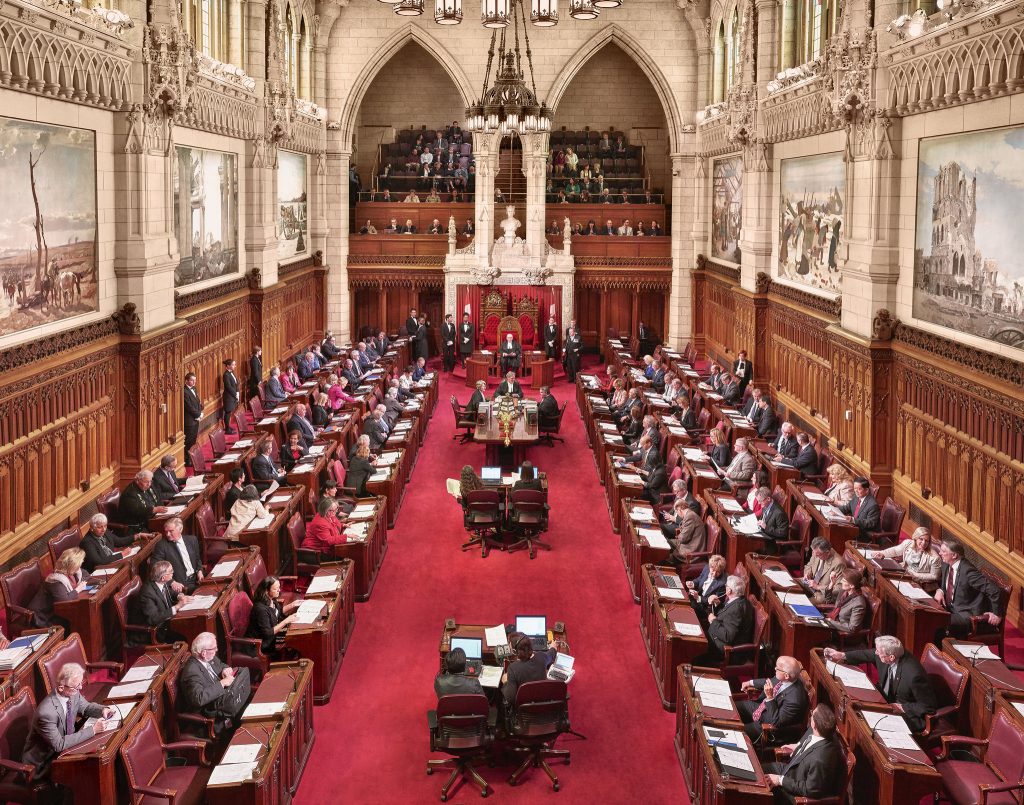
Photograph: © Library of Parliament.
By Hélène Bigras-Dutrisac
Former senators and gendered violence experts are denouncing the Canada’s new Senate harassment prevention policy implemented last month.
Critics take issue with a confidentiality clause that limits the ability of people involved in a formal complaint from discussing it outside of the policy process. According to the policy document, unauthorized disclosure of information could result in “disciplinary action.”
“Every survivor wants some resolution to a situation, and if their only path for getting a resolution within the workplace is to say ‘I’ll never talk about this; I’ll never disclose what happened to me,’” said Barb MacQuarrie of the Centre for Research and Education on Violence against Women & Children at Western University (CREVAWC) in London, Ont. “It just puts them in a really untenable position.”
MacQuarrie said the policy demonstrates a lack of empathy for survivors of workplace violence.
Independent Manitoba Sen. Marilou McPhedran compared the confidentiality demands of the new Policy to non-disclosure agreements (NDAs), according to the CBC. McPhedran told the CBC that the new directive is “a gift for the alleged harassers.”
MacQuarrie agreed with this statement. “Who is this clause in policy intended to protect?” she asked. “My first reading of that is that ‘oh, this is going to protect the respondent.’ If we look at these cases, who actually wants to confidentially? It’s much more likely to be the respondent.”
MacQuarrie also worried about the precedent this Policy could set for other Canadian workplaces.
“The senate is a very public facing institution,” MacQuarrie said. “If they’re going to get away with this kind of policy, then I think that many employers will look to what they’re doing and either intentionally or even unintentionally mimic these kinds of provisions.”
Dr. Adriana Berlingieri, an Academic Research Associate at CREVAWC whose research expertise centers workplace violence, said that NDAs and similar confidentiality provisions can normalize workplace violence.
“Silence constructs safety as an individual issue rather than an organizational one,” Berlingieri said. “By silencing individuals who have experienced harassment/violence, the root causes remain completely hidden and not addressed.”
MacQuarrie and Berlingieri are currently working with researchers at the University of Toronto and the Canadian Labour Congress on a national research project on workplace violence. MacQuarrie worried that policies like the Senate’s harassment prevention policy could have a chilling effect on this kind of research.
“We as researchers guarantee confidentiality but for somebody who’s not familiar with research or research ethics, they may not understand,” she said. MacQuarrie added that people who sign confidentiality agreements or NDAs should not be deterred from participating in research.
“I would like to encourage respondents to add their voices,” she said. “They will in no way be identified.”
Berlingieri echoed this sentiment. “We need to break the silence that surrounds and normalizes harassment and violence,” she said.
To learn more about CREVAWC’s national research project on workplace violence, please visit: http://www.learningtoendabuse.ca/our-work/our-projects-resources/national_survey_on_harassment_and_violence_at_work_in_canada/index.html
